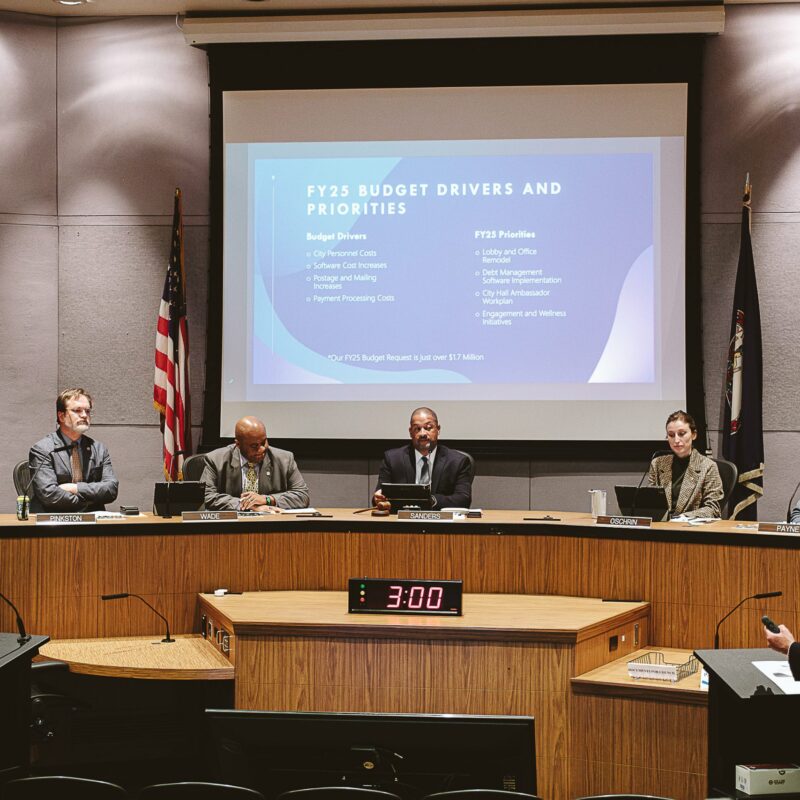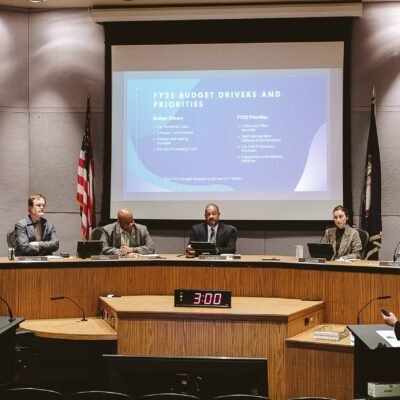To start off, let’s leave “Mad World” out of this. It’s one of those wildly symbiotic soundtrack situations where the song moves through the scene like a vine along brick. It’s that inextricable, but Gary Jules has moved on from his version of the Tears for Fears tune used in the film Donnie Darko. Tonight, when he abandons his already tenuous set list, he asks, “Does anyone have a request that isn’t ‘Mad World’?”
The response isn’t exceptionally lively, but the audience barely breaks the double-digit mark. Jules handles it well though; you wouldn’t notice the smallness of the crowd except for a break before a new song in which Jules mentions that, you know, it’s really new. And he might forget how it goes. “You can throw tomatoes,” he says. “There aren’t enough of you that I won’t be able to dodge them.”
The three-act night at Gravity Lounge began with Mando Saenz, who rasped out a short and sweet set of rock songs. Following that, A.M. started his set a little after 8pm, switching between up-strummed, spare melodies and tunes that he layered and looped on the spot. He retuned his guitar for one, haltingly saying, “I’m still trying to be that guy who tells a witty story while I tune my guitar.” He paused, turning pegs. “As you can tell, it still requires an immense amount of concentration from me.”
Gary Jules walks onto the stage around 9pm in a big sweater and a cabbie cap, looking utterly at ease, and opens with his perennial first tune, “Wichita.” Meditative and harmless, the song from his latest, self-titled album holds falling stars next to fading hours in a move towards timelessness that local poet Charles Wright would approve of: “Everything is frozen north of Wichita.” Onstage, he sings without the Elliott Smith-like double-tracked vocals he often favors in his recordings. The introspective and somewhat upbeat songs live well within a single voice.
His guitar looks well loved; it is small and stout, stained dark and dinged up, with a worn-away pick guard. He plays “Nothing,” which, like so many of his others, doesn’t rush and never feels urgent. Bass notes roll beautifully under the quick, thin-stringed melodies, punctuating and muscling the songs along. He ties this one up with a flourish—a self-conscious, show-off-y riff, and shakes a cramp out of his hand. Then, he proceeds to tell a witty story while he tunes his guitar.
In an introduction to “Gone Daddy,” another recent song, he recounts lightheartedly (in one of many L.A. stories) how he decided to move away when an Armenian gangster was assassinated down the street from his home. His story moves swiftly to a punchline (a cop on a bullhorn) but his song, though grown from the same details—the circling helicopters, the baby sleeping in the other room, the “born into the bullshit” angle—is quieted and zoomed out. It reaches its decision softly, backed with handclaps. Maybe it’s the distance in his voice that gives him the role he doesn’t want. (Another of his latest songs was used in a deathbed scene in “Grey’s Anatomy.”)
“So, I guess I’m the cathartic death guy,” he says. “The cathartic death-that-makes-you-appreciate-life guy.” It makes sense: Even in Jules’ hands, the songs are introduced with anecdotes from his life. In some way, they are always a soundtrack, throwing a lens on whatever experience we see through them.





